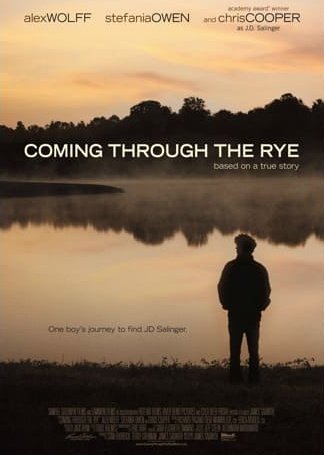Finding film investors is probably one of the most common challenges faced by every filmmaker. Part 3 of our "How to Make a Movie Mini Course" discusses how to find and approach film investors, key information you need to disclose to them and how to convey their payback and return on investment in a way that sets you up for the ultimate film funding success. Here we outline several methods to help you identify the best movie investors for your project as well as some tips on how to best approach and pitch those potential investors to increase your chances of success.
- How to find Film Investors
- How to approach Investors
- Disclose, disclose, disclose
- Investor payback
What Filmmakers Should Know Before Approaching Investors For A Movie - by Paul Sidhu
- Do not approach film investors until after you have a budget, script and business plan.
- Be prepared to show you have some "skin in the game" - you've raised some money before presenting your investment
- Contact everyone you know, especially those with a passion for your topic. Make sure EVERY contact is personalized to the exact person or company to which you reach out.
- Tell them you would love if they would be a part of your project and ask them to take a look at your business plan and provide you feedback.
- If you are just learning how to make a movie, expect 10-20% of those you contact to be interested.
- Investing in a feature film is very risky and different than investing in other types of industries. However, there can be huge tax incentives .(addressed in our Film Business Plan Template)
- An attorney should help you with this, and will teach a lot about how to make a movie.
- Always mention the unique film industry risks in your communications with potential investors.
- Our Film Business Plan Template includes pre-written and formatted Film Investment Risks, a description of the Film Industry and Example Investment Opportunity Descriptions
Back to Top of Finding Film Investors
Film Funding: Finding Sponsors
(start @ 2:10 minutes)
- Be clear on the business deal
- Make sure the subject material of the movie fits with the mission of the sponsor. Businesses will consider the protection of their brand more important than you retaining creative control.
Back to Top of Finding Film Investors
How To Find Film Investors | Filmmaking Tips
- Most short films do not make their initial investment back
- Try not to accept investor money for a short film, especially if it's your first short film.
- Our Film Financial Projections Template walks you through analyzing your film, movie production costs and easily allows you to add financials directly into your Independent Film Business Plan.
- Our Business Plan Template includes pre-written and formatted Film Investment Risks, Example Financial Notes and Descriptions, along with valuable information on the financial aspects of how to make a movie.
Back to Top of Finding Film Investors
Finding Investors For Your Movie Project
Here is another approach to finding film investors. You'll notice in the above videos, they mention not to necessarily approach people with money, but rather people with a passion for your specific project. Here, we discuss an alternative approach.
You are an independent film producer. You have a business plan, a great script, a good budget, and realistic sales projections. You have talked to distributors, ran some cast names by them and they think you have a distributable movie. What's next? You need to raise the money by finding investors for your movie project!
Probably the most common question concerning financing is; how do you go about finding investors? Answer: You find the people who have the money and you do this by the networking of contacts.
First off, who has the money? You'll notice the top tier of the medical field are some of the most highly paid. Here are the 20 highest paid professions are in the US (US Bureau of Labor Statistics).
- Psychiatrists
- Anesthesiologists
- Obstetricians and gynecologists
- Surgeons
- Orthodontists
- Oral and maxillofacial surgeons
- Family and general practitioners
- Physicians and surgeons, all other
- Internists, general
- Chief executives
- Prosthodontists
- Dentists, all other specialists
- Pediatricians, general
- Nurse anesthetists
- Dentists, general
- Petroleum engineers
- Architectural and engineering managers
- Air traffic controllers
- Computer and information systems managers
- Marketing managers
Obviously, these professions are dominated by the medical field. So let's concentrate on those professions as our initial pool of investors. But here is your problem; Doctors and Dentists in particular are notoriously hard to reach. They are unbelievably busy and are protected by the most aggressive receptionists on the planet. So skip the medical guys you think? No, because all of these professionals are busy. That's how they got to be where they are; they work hard and long hours. So how do you get their attention? The three following points will help you.
1) Have a Referral
One, and this is very, very, important; you HAVE to have a referral. Someone they know whose name you can use to get your foot in the door. You get that name by networking. People you personally know. They personally might not have any money, but who do THEY know that might have funds to invest? And the chain begins, link by link. You know A, who knows B, who knows C, who knows D. So when you call and try to get your foot in the door, you have a referral name. "DR. X, I have spoken recently (or played golf with, or met with, etc.) with Dr. Y (or Mr. Z) and he suggested that I contact you." By using this strategy you are not just another nobody, trying to steal precious time.
2) Have an Offer
Secondly, the most important thing always comes down to your offer. The only way to get doctors or any other highly paid professional to pay attention to you - let alone respond - is to provide them with a very compelling value proposition, prove why they should talk to you, give them an incentive to meet with you, and a compelling reason why they need to act now.
Use the federal and state film production incentives. By coupling the federal tax incentive (Section 168k) with an individual states production incentive, you can recover up to 75% of your investors money before distribution! For instance, if you filmed in Michigan, they have a 40% production incentive (can go up to 42% depending on where in the state you film). Couple that with an investor who is at a 35% federal tax rate (someone who makes a taxable income of over $357,700) and what you have is an immediate return of 76% before even the first sale is made. More realistically, say you could promise a 53% return, because state incentives of 25% are more common as are lower marginal tax rates (federal tax rate of 28% at an average adjusted gross income of $83,900).
This is an investment that will give your professional a 50-70% return on their investment in the first year! They will not believe you when you tell them this number (we'll discuss this in item #3). So what do you offer, what is the incentive for them to act now? They need to get on board because there is no guarantee that the incentive will be extended another year. Section 168k, which allows investments in a motion picture shot in the US to be 100% tax deductible for the investor in the same year invested, often changes by year and by politics.
3) Pitch with Authority
Third, you need to legitimize what you are saying to your prospect. Anyone can promise high returns, so you need to prove that what you are telling them is accurate. Get a CPA to write a letter about the tax advantages of film investments. Alternatively, you can write it and have them sign it. Doing it yourself is always better, because in the meetings, you will have to answer investor questions. By having a tax professional legitimize your claim of a high initial ROI (return on investment) you have added immensely to your credibility. Have a chart made up listing the expected return given a certain investment and marginal tax rate.
In summary;
1. Target your investor pool (highly paid professionals)
2. Network your contacts
3. Obtain referrals
4. Present an exciting offer and why they need to act now
5. Add credibility to your presentation
Article Source - published 2009, updated by Film Proposals 2018
http://www.articlesbase.com/movies-articles/finding-investors-for-your-movie-project-787849.html
About the Author
Jack Heape attended school in North Carolina, where he was active in the arts, performing in numerous theater, dance, and TV productions. He is currently the Executive Director of the Carolina Film Factory, a 501c(3) corporation and the general partner for Hobo Productions, LLC. Jack has over 20 years of experience in Marketing, Advertising, and Public Relations. Directing Highlights: Dollar Girl (2007) Six Degrees of Desperation (2007) Saving Maggie (2008). Producer Highlights: Final Reckoning (2006) Dollar Girl (2007) Six Degrees of Desperation (2007) Saving Maggie (2008) E-motion (2009).
Back to Top of Finding Investors
How to Find Film Investors
Film Investor Guide
- Film Investor Ultimate Guide (For Filmmakers)
- Film Investor Primer (For Investors)
- 10 Things You MUST Do To Attract Film Investors
- Preparing for Film Investors
- Film Investor Business Plan Tips
- How to Find Film Investors
- Pitching to Film Investors
- Working With Film Investors
- Film Investor Tools & Templates
How to Make a Movie Mini Course
FilmProposals - 2025 Financing Toolkits & Bundles
DIY Toolkits, Legal & Finance Service Bundles
See All Financing Toolkits, Financing Bundles & Film Legal Packs
Gold Toolkit
DIY Templates- Financing Manual
- Financial Projections Template
- Business Plan Templates (Narrative & Documentary)
- Investor Agreement Outline
- Film Budget Template
- Indie Film Pitch Deck
- Custom Indie Film Database
- BONUSES (MPA Market Stats, Dealmaking, Investor Tips, ++ )
- Regular Price $303, Save $124
Gold Toolkit + Financials Bundle
Most Popular- Full Gold Toolkit
- + Professional Sales Projections & Investor ROI (10 Films)
- Regular Price $802, Save $103
Platinum Bundle
NEWEST!- Full Gold Toolkit
- + Professional Sales Projections & Investor ROI -10 Films (Reg $499)
- + Film PPM Investor Agreement (Reg $499)
- + Filmmaker Legal Pack (Reg $129)
- Regular Price $1430, Save $231
While our FilmProposals Bundles & Toolkits will save you hundreds of hours with prewritten text and templates and speed up your learning curve by showing you how to complete complicated financial projections, there is still a lot of information to process. We designed this FREE Film Business Plan Course to be sent once per week to break the process of writing your business plan into manageable pieces, and to keep you accountable and focused.
FilmProposals Tools and Templates
- Film Financing Bundles
- Film Financial Projections Template
- Film Business Plan Template
- Documentary Business Plan Template
- Film Financing and Investor Manual
- Film Budget Template
- Indie Film Pitch Deck
- Film Investor Agreement Outline
- Film Investor Tip Sheet
- Filmmaker Legal Pack
- Indie Film Database
- FREE Business Plan E-Course








